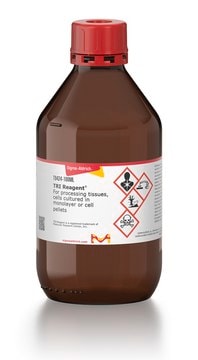C2874
CryoStor® cell cryopreservation media
CS10
Synonym(s):
cell freezing medium
About This Item
Recommended Products
Quality Level
sterility
sterile-filtered
form
liquid
technique(s)
cell culture | mammalian: suitable
cryopreservation: suitable
shipped in
ambient
storage temp.
2-8°C
Looking for similar products? Visit Product Comparison Guide
General description
CryoStor CS2, CS5, and CS10 are a series of cell specific, optimized preservation media, uniquely formulated to address the molecular biological aspects of cells during the cryopreservation process; thereby, directly reducing the level of Cryopreservation-Induced Delayed-Onset Cell Death and improving post-thaw cell viability and function.
These media are recommended for the preservation of stem cells, hepatocytes, tissue samples, and other extremely sensitive cell types.
Application
- the preservation of T cells
- the preservation of human induced pluripotent stem cell-derived cardiomyocytes (hiPSC-CMs)
- hiPSC-derived cardiac progenitors (hiPSC-CPs)
- as a component of cryoprotective solution composed of bovine albumin
Other Notes
Legal Information
comparable product
related product
Storage Class Code
10 - Combustible liquids
WGK
WGK 2
Flash Point(F)
Not applicable
Flash Point(C)
Not applicable
Choose from one of the most recent versions:
Already Own This Product?
Find documentation for the products that you have recently purchased in the Document Library.
Customers Also Viewed
Articles
rganoid culture products to generate tissue and stem cell derived 3D brain, intestinal, gut, lung and cancer tumor organoid models.
Protocols
Cryopreservation efficacy - which includes post-thaw recovery, viability, and functionality is of importance to both research and clinical applications. The cumulative stresses that result from the cryopreservation process and suboptimal freeze media result in cell death from necrosis and apoptosis.
Dilute fibronectin to the desired concentration. Optimum conditions for attachment are dependent on cell type and application. The typical coating concentration is 1 – 5 ug/cm2.Fibronectin coating protocol, products, and FAQs.
Our team of scientists has experience in all areas of research including Life Science, Material Science, Chemical Synthesis, Chromatography, Analytical and many others.
Contact Technical Service








